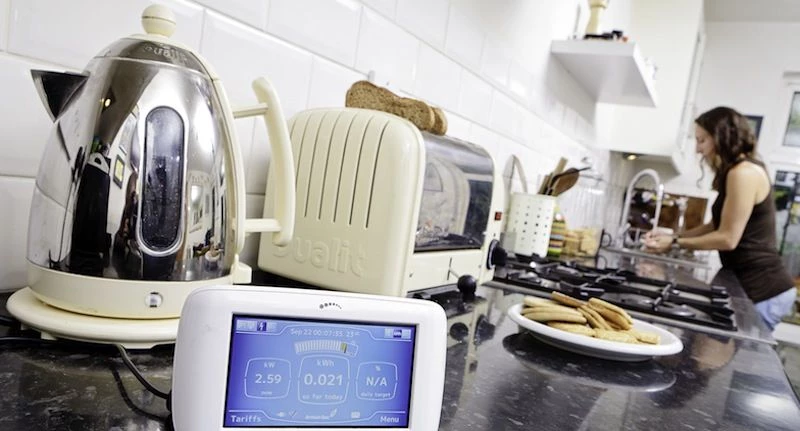
Partner Article
Consumers demonstrate changeable habits in North East 'smart grid' project
Householders taking part in one of the UK’s largest ‘smart grid’ projects, here in the North East, have shown their willingness to adapt their consumption of electricity.
Over 9,000 onsumers taking part in the Customer-Led Network Revolution showed their willingness to adapt daily routines to use electricity outside of peak demand hours.
Findings so far from the study have been published by Durham University.
Dr. Gareth Powells, from Durham University, said: “The way people use electricity has changed dramatically in the last decade. People are much more reliant on technologies such as laptops and smart phones and the electrification of vehicles and heating is becoming more popular, so our findings reveal some really fascinating insights into how people are using electricity and how much they are prepared to be flexible in this use.
“We’ve also found evidence that as time and space boundaries between home and work are becoming more blurred, with more people working from home or working flexible hours for example, their use of electricity and how they relate to the grid is also starting to change.”
Many of the 9,000 people involved are using low carbon technologies such as heat pumps, electric vehicles and solar panels, or are taking part in time-of-use (ToU) trials.
The tariff-based ToU offers customers a financial incentive to use electricity outside of peak demand periods when households use the most electricity – typically on weekdays between 4 and 8pm.
ToU trial participants and customers with solar panels in particular demonstrated a greater understanding of how they consume electricity and an openness to be more flexible in their energy consumption.
Dr. Powells, added: “The findings have revealed that trial participants are willing to adapt some of their usual behaviour, in terms of carrying out daily chores like laundry, hoovering and washing up, to shift their electricity use to outside of the peak demand period, particularly to make better use of ToU tariffs.
“There’s clearly an increased sensitivity to the cost of energy, so this is a key incentive for trial participants to change their energy use.”
Led by Northern Powergrid and part funded by Ofgem’s Low Carbon Networks Fund, the project is the largest of its kind in the UK and is being completed in partnership with British Gas, Durham University, Newcastle University and EA Technology.
The findings from the project will be shared with other network operators to help the electricity industry prepare for the challenges presented by a low carbon future.
The full report and a briefing note are available to download at http://www.networkrevolution.co.uk/industryzone/projectlibrary.
This was posted in Bdaily's Members' News section by Tom Keighley .
Enjoy the read? Get Bdaily delivered.
Sign up to receive our daily bulletin, sent to your inbox, for free.








 Navigating the messy middle of business growth
Navigating the messy middle of business growth
 We must make it easier to hire young people
We must make it easier to hire young people
 Why community-based care is key to NHS' future
Why community-based care is key to NHS' future
 Culture, confidence and creativity in the North East
Culture, confidence and creativity in the North East
 Putting in the groundwork to boost skills
Putting in the groundwork to boost skills
 £100,000 milestone drives forward STEM work
£100,000 milestone drives forward STEM work
 Restoring confidence for the economic road ahead
Restoring confidence for the economic road ahead
 Ready to scale? Buy-and-build offers opportunity
Ready to scale? Buy-and-build offers opportunity
 When will our regional economy grow?
When will our regional economy grow?
 Creating a thriving North East construction sector
Creating a thriving North East construction sector
 Why investors are still backing the North East
Why investors are still backing the North East
 Time to stop risking Britain’s family businesses
Time to stop risking Britain’s family businesses